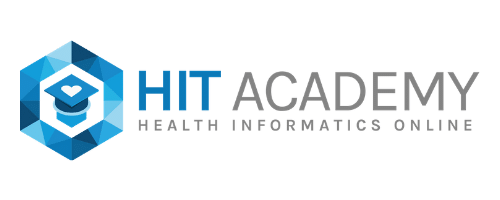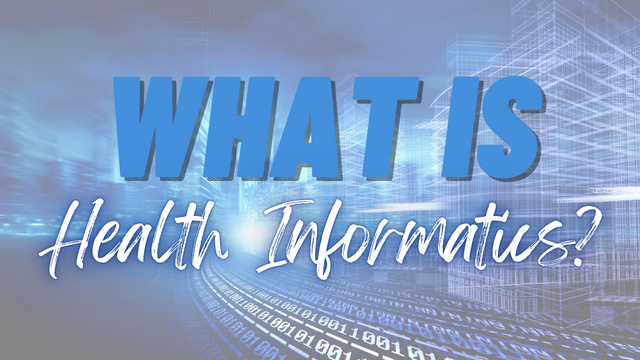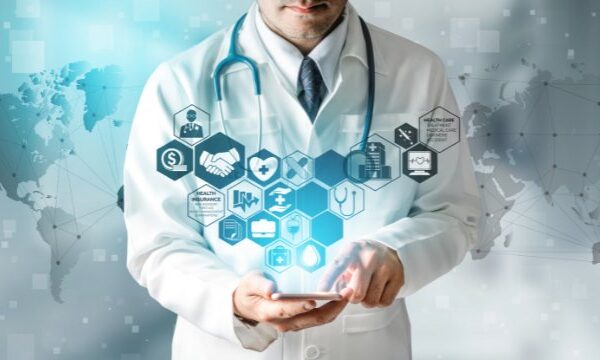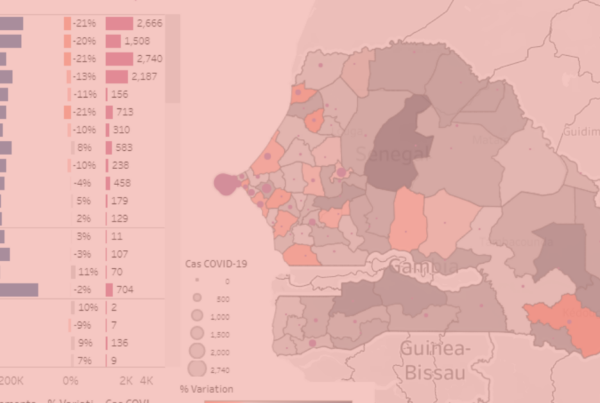
Health Informatics Professionals Save Lives! Non-clinical roles in health care can have a dramatic impact on patients’ lives. Health informatics is one such role. It involves managing and organizing data to improve patient care. This can include anything from developing electronic medical records to tracking patient outcomes. Working in health informatics can help make a real difference in the quality and accessibility of health care.
What Is Health informatics?
Healthcare informatics, or health informatics, is the application of information technology (IT) and data management to the field of health care. It is a broad discipline that covers a vast array of topics, including medical informatics, biomedical informatics, nursing informatics, and public health informatics.
Health Informatics Defined by HIMSS
“Health informatics is the integration of healthcare sciences, computer science, information science, and cognitive science to assist in the management of healthcare information” (Saba & McCormick, 2015, Pg. 232).
The goal of healthcare informatics is to use technology and data to improve patient care, enhance the delivery of health care services, and make healthcare more cost-effective. The US Healthcare is taking drastic measures to reduce cost of healthcare and increase the quality of care. This has created a huge demand for individual with skillset in the various Health informatics discipline.
Clinical & Medical Informatics
The term “medical informatics” refers to the use of informatics tools and techniques in the field of medicine. In addition, medical informatics can also refer to the study of how information technology can be used to improve medical care.
Medical informatics is the use of information technology (referred to as Health IT) and data to support patient care, healthcare delivery, and public health. It includes the management and analysis of electronic health records (EHRs), as well as the use of health information exchange (HIE) to share patient data between providers.
There are many different types of medical informatics use cases, but some common examples include electronic health records (EHRs), clinical decision support systems (CDSSs), and hospital information systems (HISs). Medical informatics is a rapidly growing field, and there is a great need for qualified professionals who can design, implement, and manage these types of systems.
Examples of Medical Informatics
- Tracking patient allergies and sensitivities
- Managing medication schedules and alerts
- Coordinating care between specialists
Medical Informatics Jobs include:
- Healthcare Information Technician – (Entry-Level)
- Clinical Analysts – (Mid-Level)
- Director, Health Informatics – (Senior-Level)
Biomedical informatics
Bioinformatics is a field of study that uses computers to analyze biological sequences, such as DNA and proteins. This information is used to better understand the structure and function of biological molecules. Bioinformatics has many applications, including the development of new medicines and diagnostic tools.
Biomedical informatics played a major role in identifying the COVID 19 strain. This entailed the development of databases that store information on the genomes of viruses and other pathogens. This information is used by researchers to develop new diagnostic tools and treatments.
Biomedical informatics is a rapidly growing field that is constantly evolving. New technologies are being developed that allow for more accurate and faster analysis of biological data. With the ever-growing amount of data being generated by biomedical research, bioinformatics will play an increasingly important role in the years to come.
You can think about bioinformatics as essentially the linguistics part of genetics. That is, the linguistics people are looking at patterns in language, and that’s what bioinformatics people do–looking for patterns within sequences of DNA or protein.
Examples of Bioinformatics Tools
- Sequence alignment – comparing DNA or protein sequences to identify similarities and differences
- BLAST – a search engine that compares nucleotide or amino acid sequences against sequence databases
- Gene expression profiling – measuring the levels of gene expression in different tissues or cells
Bioinformatics Jobs include:
- Bioinformatics Analyst (Entry-level)
- Bioinformatics Scientist (Mid-Level)
- Senior Bioinformatics Engineer (Senior-Level)
Nursing Informatics
Nursing informatics is the science and practice of utilizing computer technology to support and optimize nursing care. Informatics nurses work with health information systems to ensure that accurate patient data is collected, stored, and used effectively. They also use data mining and other analytical techniques to identify trends and improve patient outcomes.
In recent years, nursing informatics has become increasingly important as the healthcare industry has transitioned to a more data-driven approach to care. Hospitals and other healthcare facilities are relying on data to make decisions about patient care, and nurses are uniquely positioned to help ensure that this data is accurate and used effectively.
Nursing informatics specialists typically have a background in both nursing and computer science. They use their knowledge of both disciplines to design, implement, and manage health information systems. Informatics nurses also work with clinicians and other healthcare professionals to ensure that these systems are used effectively and meet the needs of patients and caregivers.
Nursing Informatics Defined by ANA
“The American Nurses Association (ANA) identified nursing informatics as “a specialty that integrates nursing, science, computer science, and information science to manage and communicate data, information, and knowledge in nursing practice” (ANA, 2001, Pg.17).
Examples of Nursing Informatics
- Using predictors such as patient history, lab results, and vital signs, nurses can create a risk stratification matrix to identify patients who are at risk for certain outcomes.
- Nurses can use informatics tools to track patients’ medication adherence and identify patterns of non-adherence.
- Implementing a clinical decision support tool that alerts nurses when a patient’s blood pressure is outside of the normal range.
Nursing Informatics Jobs include:
- Informatics Nurse Specialist (Entry-level)
- Nurse Informaticist (Mid-Level)
- Nursing Informatics Director (Senior-Level)
Public Health Informatics
Public health informatics is the application of information science to public health. It refers to the use of information and communication technologies (ICT) in order to improve, maintain, or promote health and well-being. Public health informatics has been defined as “the scientific field that deals with utilizing digital data for population health purposes”.
The goals of public health informatics include the use of digital data to:
- Improve population health
- Advance individual and community health equity
- Support more effective decision-making by public health practitioners, policy-makers, and individuals
- Enhance access to quality care
- Strengthen public health surveillance
- Enable research on public health issues
Public health informatics tools and techniques include:
- Electronic health records (EHRs)
- Health information exchange (HIE)
- Health information technology (HIT)
- mHealth or mobile health
- Geospatial mapping
- Data mining and analytics
- Natural language processing (NLP)
Public Health Informatics Defined by CDC
“Public health informatics is the systematic application of information, computer science, and technology to public health practice, research, and learning.” — Public Health Informatics: Improving and Transforming Public Health in the Information Age
Examples of Public Health Informatics
- The use of Geographic Information Systems (GIS) to map outbreaks of infectious diseases and track the spread of disease.
- Disease Surveillance: Disease surveillance is another important example of public health informatics. By tracking disease trends, public health officials can better understand how diseases are spreading and take steps to prevent further spread.
- Health information exchange (HIE) is a type of public health informatics that allows for the sharing of health information between different healthcare organizations. This can improve coordination of care and help to ensure that patients receive the best possible care.
- Population health management is example of public health informatics. By tracking and analyzing data on the health of a population, public health officials can identify trends and issues that need to be addressed (Social Determinants of Health – SDOH). This information can then be used to develop policies and programs that improve the overall health of the population.
Public Health Informatics Jobs include:
- Public Health Informatics Specialist (Entry-level)
- Clinical Data Analyst (Mid-Level)
- Director, Division Of Health Informatics And Surveillance (Senior-Level)
Is health informatics a good career choice?
Health informatics is a rapidly growing field with many opportunities for career advancement. The Bureau of Labor Statistics projects that employment in health information and medical records occupations will grow by 15 percent from 2014 to 2024, much faster than the average for all occupations.1
There are many reasons why health informatics is a good career choice. The field offers a good salary potential, job security, and the opportunity to make a positive impact on the healthcare system.
1. Health Informatics Salary Potential
According to Salary.com, “the average Healthcare Information Technology salary in the United States is $88,913 as of May 27, 2022, but the salary range typically falls between $81,054 and $101,397. Salary ranges can vary widely depending on many important factors, including education, certifications, additional skills, the number of years you have spent in your profession. With more online, real-time compensation data than any other website, Salary.com helps you determine your exact pay target.”
2. Job Security
According to the US Bureau of Labor Statistics, employment in the healthcare informatics field is expected to grow by 13 percent between 2016 and 2026; much faster than the average for all occupations. This growth is being driven by an increased need for healthcare organizations to adopt electronic health records and use patient data to improve care quality and patient outcomes. As healthcare organizations increasingly turn to health information technology to improve their operations, the demand for qualified healthcare informatics professionals will continue to grow.
3. Opportunity to Make a Positive Impact on Healthcare
Health Informatics professionals are mainly behind the scene but their reach is enormous. Population Health Management, Quality Improvement, and Chronic Care Management are all areas where Informatics professionals can have a direct impact on providing quality patient care. These programs touch hundreds of thousands of patients, and the hope is that by improving the quality of care in these arenas will have a positive effect on healthcare as a whole.
So you what to become a Health Informatic Professional?
Now you read of many examples of how Health Informatics Professionals Save Lives! If you are interested in a career in health informatics, there are many things to consider. The field offers a good salary potential, job security, and the opportunity to make a positive impact on the healthcare system. With the increasing use of EHRs, health information technicians will play an important role in improving the quality of patient care. But if you’re up for the challenge here the skills you’ll need to succeed.
Skills needed to become a Health Informatics Professional
There are a few common skillsets required to become a successfully health informatics professional. Most importantly, health informatics professionals must be able to use computers to store, retrieve, and analyze patient data. They must also be able to understand medical terminology (ICD-10, CPT, LOINC, SNOMED) and keep up with the latest changes in healthcare technology (HL7, FHIT, IOMT).
Some skills that are needed to become a health informatics professional include:
- Strong computer skills: In order to work in health informatics, individuals need to be proficient in using computers. They should be able to use various software programs and databases.
- Strong communication skills: Health informatics professionals need to be able to communicate effectively with other healthcare professionals, such as doctors and nurses. They will also need to be able to explain technical information in a way that non-technical people can understand.
- Organizational skills: Health informatics professionals need to be able to organize large amounts of data. They should be able to create systems that make it easy for others to access and use the data.
- Analytical skills: Health informatics professionals need to be able to analyze patient data. They should be able to identify trends and patterns in the data. They can then use this information to improve patient care.
- Medical knowledge: Health informatics professionals need to have a basic understanding of medicine. They should know how to use medical terminology and understand the latest changes in healthcare technology.
- Problem-solving skills: Health informatics professionals need to be able to solve problems. They may need to troubleshoot systems or figure out ways to improve the quality of patient care.
- Project Management skills: Health informatics professionals may be responsible for managing projects such as the implementation of a new electronic health record system. They should be able to plan, organize, and oversee the project from start to finish.
Tools Used to Analyze Clinical Data
- Structured Query Language (SQL): SQL is a programming language that is used to query databases. It can be used to find trends and patterns in large amounts of data. SQL is required to interact with clinical databases and EHR system. This tool provides the foundation of health analytics. – (Postgres, MySQL, Microsoft SQL Server, Oracle).
- Microsoft Excel: Microsoft Excel is a spreadsheet application that can be used to store, organize, and analyze data. This is the most basic form of keeping track of patient information, laboratory results, and medication usage.
- Tableau: Tableau software is a business intelligence tool that can be used to create data visualizations and tell a story using clinical data. It can be used to present clinical data in a way that is easy to understand.
- Power BI : Power BI is another business intelligence tool that is be used to create graph, reports, and track clinical measurements. It’s data visualization capabilities allow real-time data that is easy to understand.
- Hadoop: Hadoop is a platform that can be used to store and process large amounts of data. It can be used to analyze clinical data and identify trends.
- Python programming language: Python in Healthcare – Python is a programming language that can be used to engineer data for machine learning algorithms, predictive models, and other advanced analytics techniques. It can be used to analyze clinical data and identify patterns and predict adverse outcome. – (Matplotlib, Pandas, Numpy, Seaborn, and Scikit-learn libraries)
- R programming language: R is a programming language that can be used to create statistical models. It can be used to analyze clinical data and predict outcomes. – (StatsModel, ggplot2, and dplyr R packages)
- SAS programming language: SAS is a programming language that can be used to create data reports. It can be used to summarize clinical data and present it in a way that is easy to understand.
Conclusion
Becoming a Health Informatics Professional means you get paid great money to save thousands of lives. You get to help people every day and make a positive impact on the world. Health Informatics is a field that is constantly evolving, so you will never be bored. There are many different paths you can take in this field, so you can find the perfect fit for you.
If you’re interested in pursuing a career in Health Informatics, get a head start by learning the essentials of data analytics using healthcare data. Our eBook Bootcamp Course teaches you both SQL & Tableau using healthcare data. This course is perfect for those who are new to health informatics or want to learn more about how to use data to improve healthcare and get your dream job.
Enroll in the eBook Bootcamp Course today!





Recent Comments